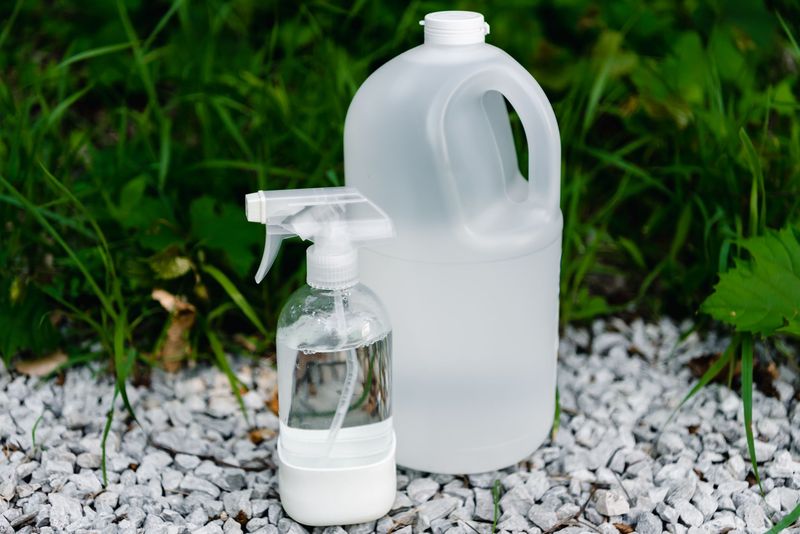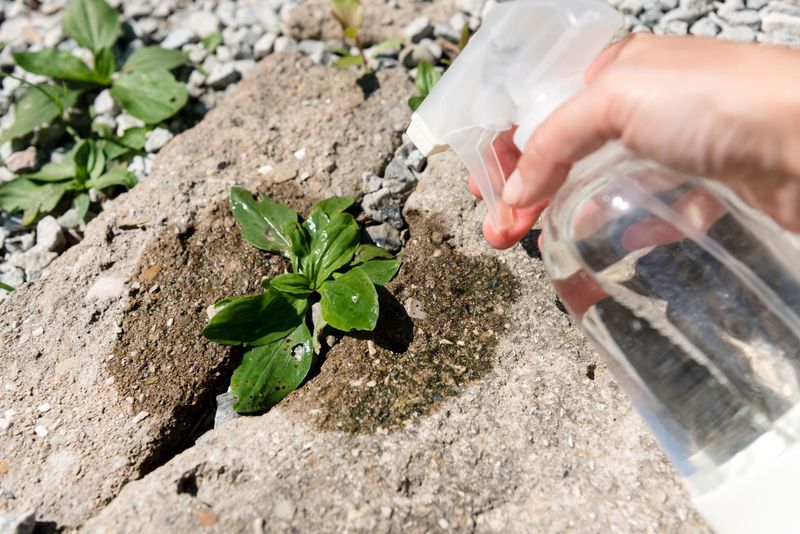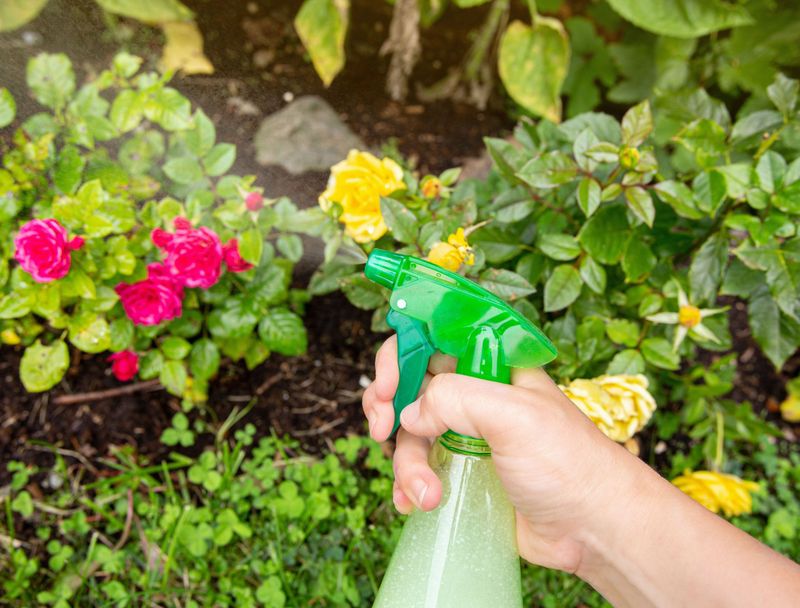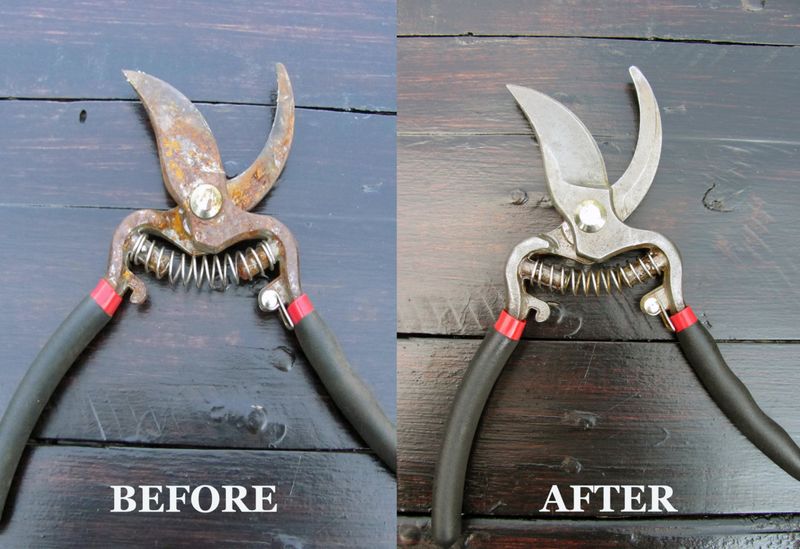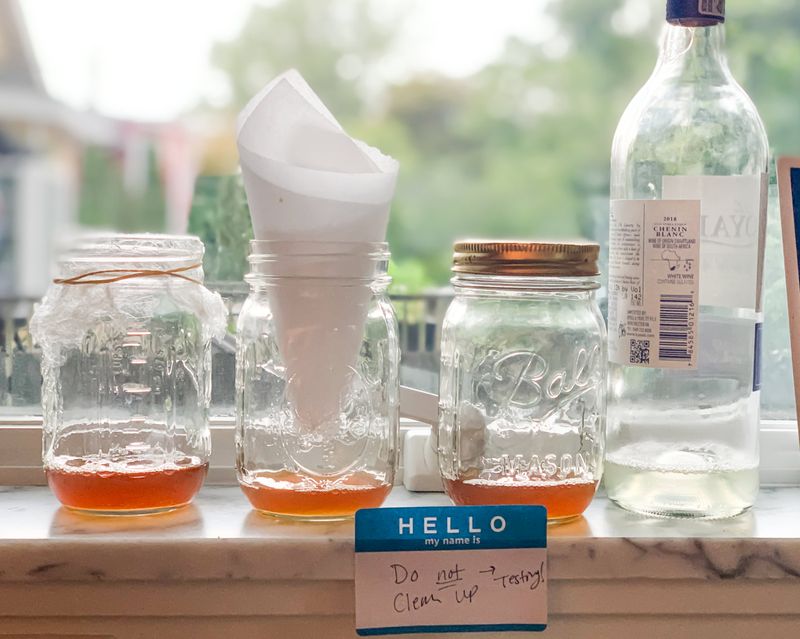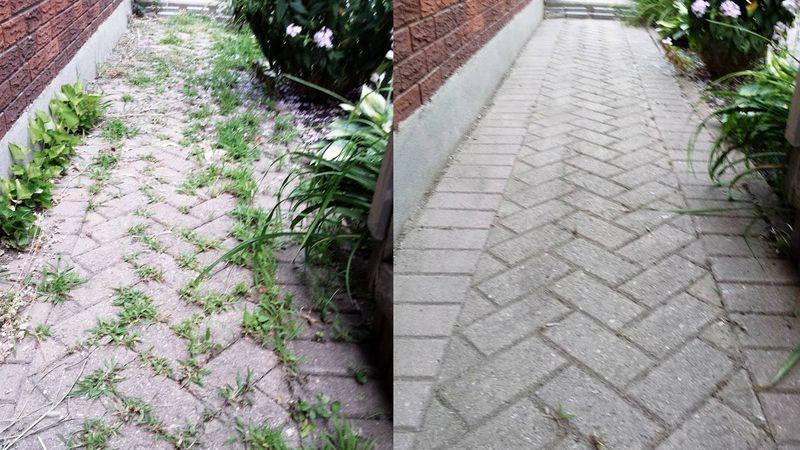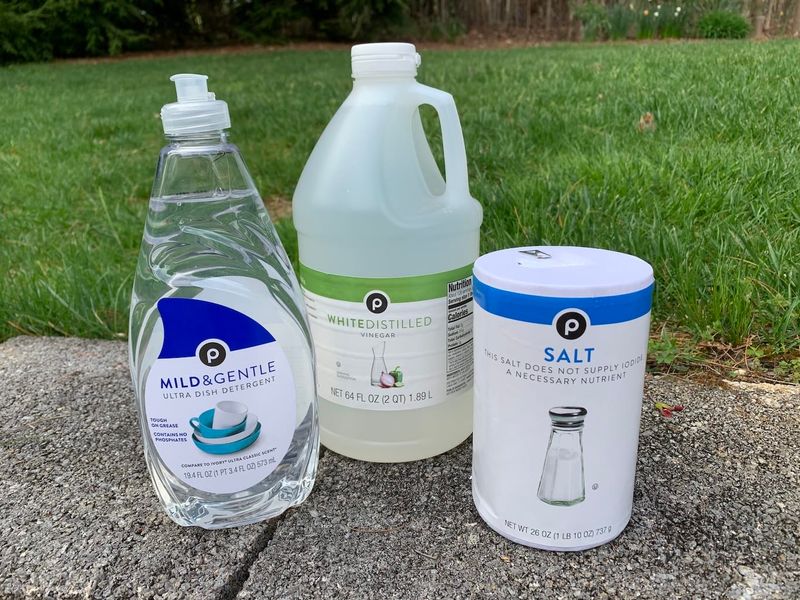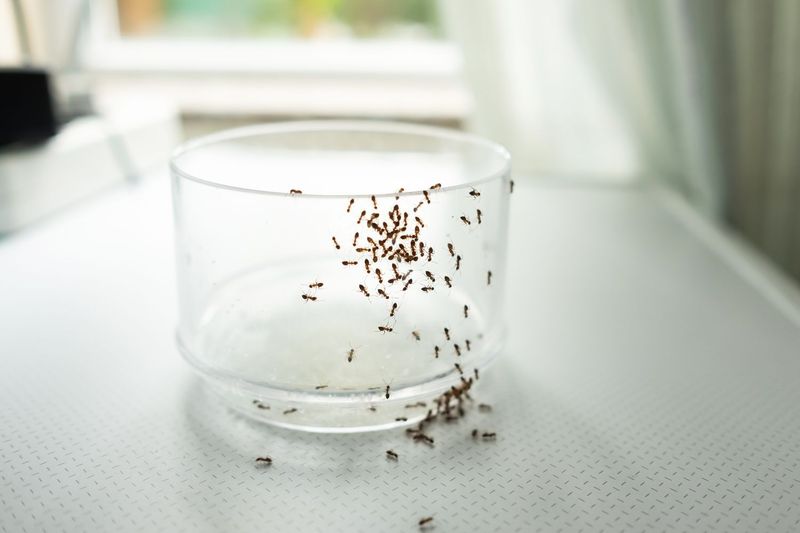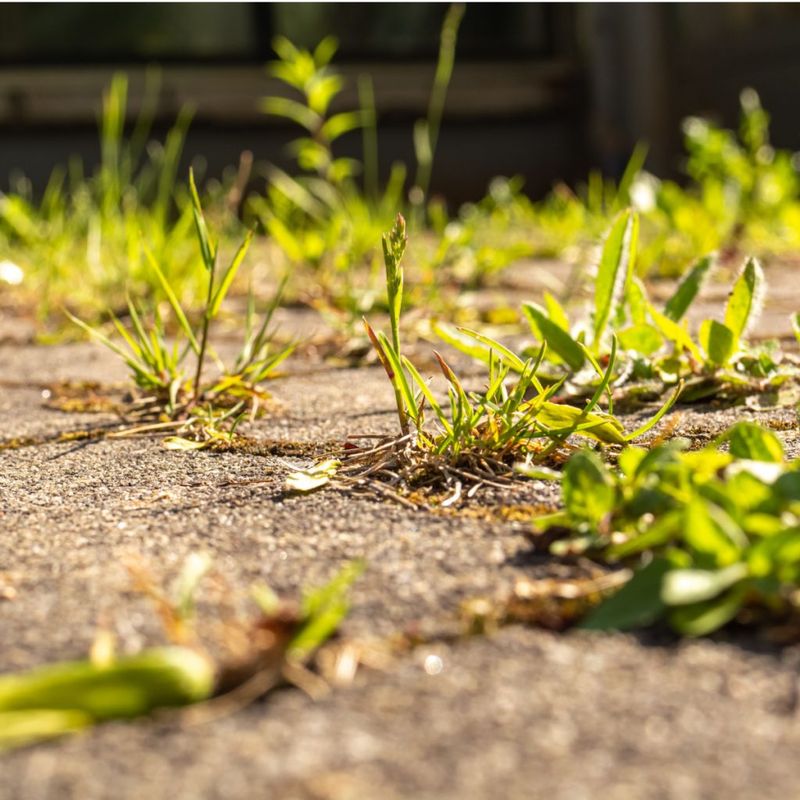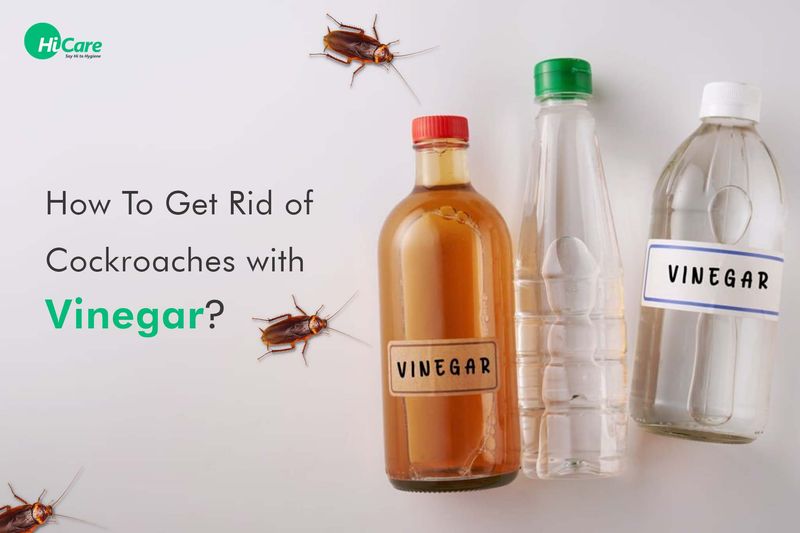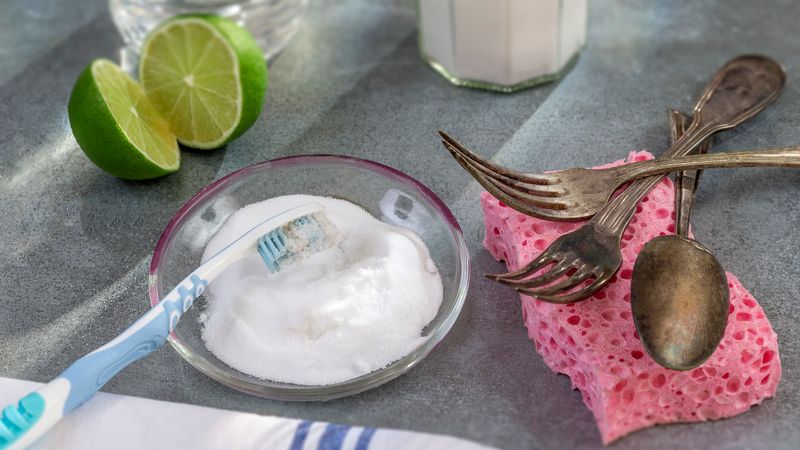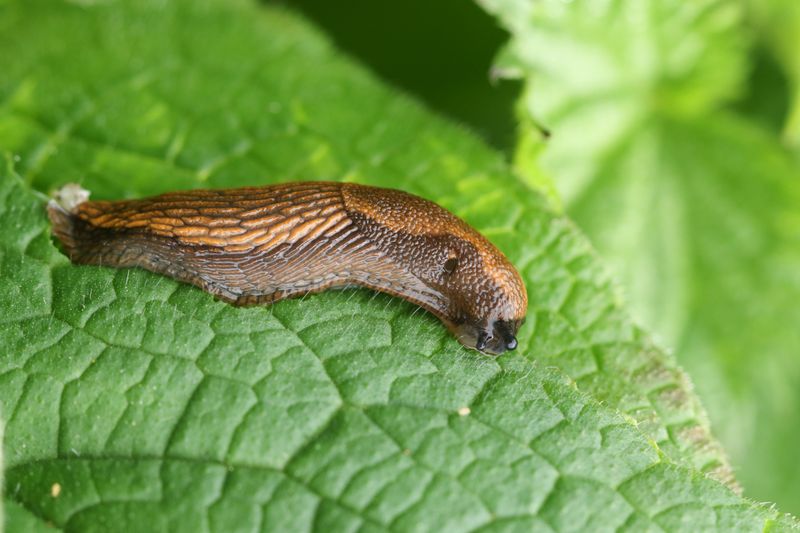Vinegar is an effective and natural solution for tackling weeds and managing pests in your garden. It’s a versatile substance that can be used in various ways to promote a healthy and thriving outdoor space.
This blog post will guide you through twelve unique methods to use vinegar for keeping your garden pest-free and preventing unwanted weed growth.
You’ll discover how to make the most of this common household item in an environmentally friendly way, ensuring your garden remains vibrant and beautiful throughout the seasons.
1. Vinegar Spray for Weed Control
Vinegar can be a potent weed killer when used as a spray. By targeting unwanted plants, it quickly dries them out. To make the solution, mix vinegar with a little water in a spray bottle. Apply it directly to the leaves of weeds on a sunny day.
This method is particularly effective for young, annual weeds. Avoid spraying desirable plants, as vinegar can harm them too. Regular application may be required for persistent weeds. Use with caution around delicate garden areas.
2. Soil Acidification with Vinegar
Vinegar can lower soil pH, making it less hospitable to weeds. By acidifying the soil, you can inhibit growth. Pour diluted vinegar around areas prone to weed growth. This approach works best in soil that already has a higher pH.
Be careful not to overuse, as it can damage plants you want to keep. Monitor soil pH levels to maintain balance. This method is best for experienced gardeners who understand their soil’s chemistry.
3. Vinegar as a Pest Deterrent
Using vinegar as a pest deterrent can help keep unwanted insects at bay. Its strong smell is effective in repelling ants, snails, and slugs. Simply spray vinegar around the garden edges and near pest-prone areas. Remember to avoid direct contact with plants.
Reapplication is necessary after rain or watering. This natural method is a safe alternative to chemical pesticides. It helps maintain ecological balance while protecting your garden.
4. Cleaning Garden Tools with Vinegar
Vinegar’s acidic properties make it excellent for cleaning tools. It removes rust and sterilizes equipment, preventing disease spread. Soak tools in vinegar, then scrub with a brush to remove grime. Rinse thoroughly and dry before storage.
Regular cleaning keeps tools in optimal condition, ensuring efficient garden maintenance. This practice also prolongs the lifespan of your tools. It’s an economical and environmentally friendly cleaning method.
5. Vinegar Traps for Fruit Flies
Vinegar traps can effectively catch fruit flies in your home. By using a shallow dish of vinegar covered with cling film, you create an irresistible trap. Poke holes in the film, allowing flies to enter but not escape. Place traps near fruit bowls or garbage bins.
The vinegar’s scent will attract the flies, reducing their numbers. Change the solution regularly for best results. This method is a simple and non-toxic way to manage indoor pests.
6. Weed-Free Pathways with Vinegar
Maintaining weed-free pathways can be achieved with vinegar. By spraying vinegar along walkways or driveways, you can prevent weeds from taking root. This method keeps pathways neat and requires less maintenance over time.
Apply vinegar during dry weather for maximum effectiveness. Be cautious of surrounding plants, as vinegar can affect them too. Regular applications will ensure pathways remain clear and tidy, enhancing garden aesthetics.
7. Vinegar and Salt Weed Killer
Combining vinegar with salt creates a powerful weed killer. This mixture is effective against stubborn, deep-rooted weeds. Mix vinegar, salt, and a little dish soap for adhesion. Spray directly onto the weeds, ensuring thorough coverage.
This solution should be used with care, as it can harm desirable plants. It’s best applied on calm, sunny days to prevent drift. The mixture’s potency makes it suitable for tough weed infestations.
8. Vinegar and Water for Ant Control
A vinegar and water solution can deter ants from invading your garden or home. Spray the mixture along ant trails and entry points. The vinegar disrupts their scent trails, preventing them from returning.
This natural deterrent is safe for children and pets. Repeated application may be necessary for persistent infestations. It’s an environmentally friendly way to manage ants without using harmful chemicals.
9. Vinegar Herbicide for Driveways
Using vinegar as a herbicide for driveways is an effective way to manage weeds. By targeting cracks where weeds emerge, vinegar can keep driveways clear. Apply it directly to visible weeds, focusing on sunny days for enhanced action.
This method reduces the need for chemical herbicides. Be mindful of runoff, as it can affect nearby vegetation. Regular applications will maintain a weed-free driveway, improving your home’s curb appeal.
10. Insect-Repelling Vinegar Solution
A vinegar-based insect repellent can protect your garden from harmful bugs. By spraying it around the garden perimeter, you create a barrier against pests. This solution is effective against mosquitoes and other nuisances.
It’s safe to use around children and pets. Reapplication is necessary, especially after rain. This preventive measure helps maintain a healthy garden ecosystem. It’s a natural alternative to synthetic repellents.
11. Vinegar and Baking Soda for Cleaning
Vinegar and baking soda make a dynamic cleaning duo for garden pots. By combining these ingredients, you can remove dirt and stains. The solution fizzes on contact, lifting grime effortlessly. Use a brush to scrub stubborn spots, then rinse thoroughly.
This method is ideal for maintaining pot hygiene, ensuring healthy plant growth. It’s a cost-effective and eco-friendly cleaning option that revitalizes your gardening tools and containers.
12. Vinegar as a Slug Barrier
Using vinegar as a slug barrier can protect your plants effectively. Pouring vinegar around plant bases creates an acidic environment slugs avoid. This method is best used in the evening when slugs are most active.
Reapplication after rain enhances effectiveness. It’s a simple and natural way to safeguard your garden. While it’s safe for plants, ensure minimal contact to avoid damage. This approach deters slugs without harming beneficial wildlife.

